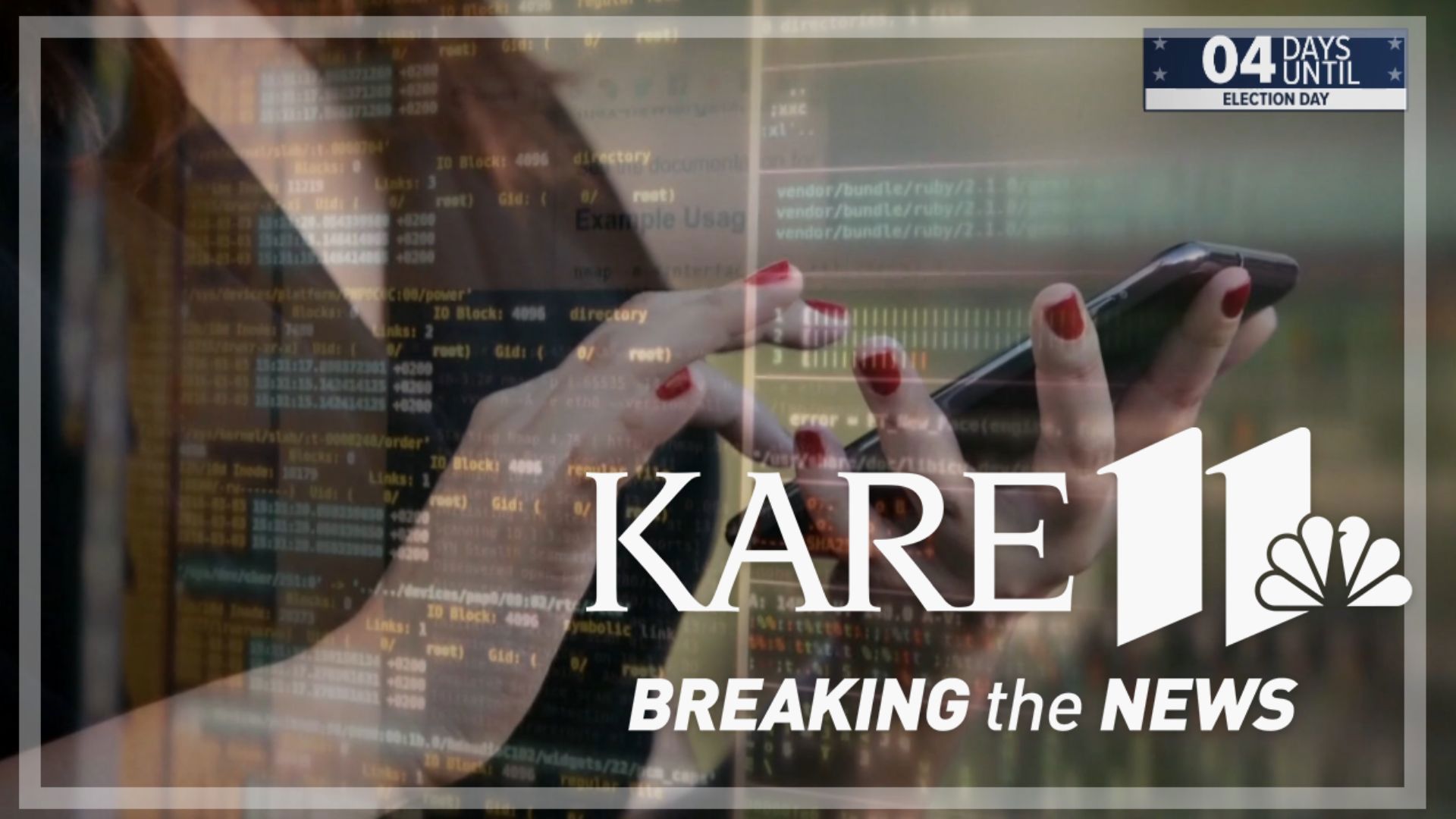MINNEAPOLIS — When a deepfake robocall of President Biden urged New Hampshire residents to stay home during the primary election back in January, many wondered how something similar might be used to manipulate voters in the general election.
"It's a question we're getting every day, probably actually a few times a day given the prevalence of (deepfake) tools," said Ben Colman, co-founder and CEO of Reality Defender, a company that uses artificial intelligence models to detect AI generation and manipulation in audio, video, images, and text.
Colman said he's seen the amount of election-related deepfakes climb even more in recent weeks.
"We're seeing tens of thousands, if not hundreds of thousands of social media accounts that themselves are deep faked accounts where the profile photo is fake, the media is fake and they're being used to propagate and create a bit of an echo chamber to make certain topics more trending than others."
Kent: "What would you tell people about how to defend against it?"
Colman: "Our company is 50 people with a five-to-one ratio of PHD researchers and engineers to non-technical (staff). Even the PHDs in our team cannot tell the difference with their own naked eyes, which really means that an average person doesn't stand a chance. What I tell people is, you know, be really careful where you're seeing media. The challenge as the consumer is that the platforms themselves - social media and streaming - are doing nothing. If anything, they're benefiting from the echo chamber for more clicks for more advertising, more revenue. We used to say trust but verify. Now we say you can't ever trust and you always should verify and just be very careful where you're getting your information from."
Erdahl: "What keeps you up at night when it comes to this election?"
Colman: "It's not the famous people, it's not the deepfakes of Kamala Harris or Donald Trump. It's the deepfakes that may affect the most junior people who are the most important to facilitating a safe election. We are seeing poll workers getting potentially deep fake phone calls for them to go one place or not go one place or perhaps saying that a polling location is closed. And if you think about the tightness of the races in regions like Michigan and Wisconsin, the challenges are really, really dangerous.
I also think about average citizens getting a phone call from their boss saying I need to work early, or getting a phone call from someone who sounds like their husband or wife saying come home early. In certain areas of the country when less than 10,000 votes can sway the whole country's electoral process. It's not that many people that are needed to actually change the vote, so that keeps me up at night."
While there's no quick fix for the days ahead, Colman says Reality Defender is working with some companies on ways to detect deepfakes on their platforms.
"With AWS and NVIDIA, we launched our real-time video AI detection," he said. "So for the Zoom we're having right now, we can - in real-time - detect if you or I are real or a deepfake.
We also recently announced a partnership with Eleven Labs on how we can better detect their generative AI model. So you could think of us as anti-virus software where we're working with some of the kind of producers of potential dangerous tools to be able to detect them before any consumer has access to them."

